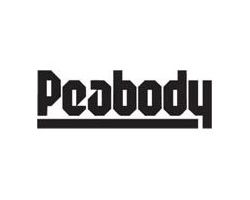How many times can you recall someone telling to you that we are going to run out of oil? That oil prices are rising due to instability in the Middle East and how often have you heard that the United States should lessen its dependence of foreign oil? I'm sure you have heard these gripes quite a bit, I have.
But I don't believe many people mention much coal. Do they? Coal currently made up 21% of U.S. energy consumption in 2010. Coal has been a part of our national pastime. Sure it's dirty, to an extent, but since 1950 coal use has continued to go up. The U.S. holds 200 years of coal reserves and 93% of coal consumption fuels electrical power. Take a look at the chart below:
Coal production and consumption in the United States continues to grow. Add in the fact that rising oil prices due to tensions abroad and fears regarding nuclear energy following Japan's earthquake have made coal much more desirable, we can expect coal demand to increase.
Which brings me to my highlight recommendation of the day. Peabody Energy Corporation (BTU) is the world's largest coal producing corporation with a market cap of $14.96Billion and it offers a wide array of pros that surely outweigh any cons in determining whether this stock is a screaming buy.
Lets examine some pros and cons before delving into any analysis:
Pros:
- They supply almost 2% of the world's energy needs.
- The company does not solely provide coal to the U.S., they provide coal from their mines in Australia to China and India.
- Decent P/E of 19.
- .60% annual dividend.
- BTU has met/beat earnings for the past 4 quarters.
- Despite the push for clean energy, it remains expensive, unprofitable and highly government subsidized. Coal is the cheapest form of energy in the U.S., at nearly 1/3 the price of natural gas.
Cons:
- Fears of slower growth in China and a push for cleaner forms of energy.
- Environmental damage in regards to mining practices.
- Coal is dirty and harmful to the air when burned.
- Strong push within the United States for clean energy use.
Conclusion:
BTU remains an attractive pick in today's market. It trades for a relatively cheap price and has been particularly oversold in the past few weeks. Coal is cheap and demand remains high; BTU has a large international portion that sells directly to China and India. Demand in those countries remains high, while prices remain relatively cheap.
Worries remain significant for a multitude of reasons. Environmental and mining practices have come under pressure and there is an ever growing push towards clean energy. But coal, is well coal. It remains the cheapest form of energy extracted in the U.S. and the coal lobby remains particularly strong. Clean coal technology is improving, so much so that many of the harmful emissions are filtered before they enter the air. The U.S. has also invested nearly $90Billion in clean coal technologies. The fact remains that coal remains cheaper than other forms of energy and it is becoming cleaner when used.
To conclude, I remain quite bullish on BTU. Demand for coal remains high and the company remains the largest provider of coal in the world. With mining operations in Australia and the United States, BTU has been able to fill market needs in SE Asia and the United States. The recent drop in the economy has provided a nice buying opportunity to enter into a position in BTU. A nice entry point of $55 could offer significant upside in the mid-term future. It was not long ago BTU was hovering in the $70s and that target remains well within reach. With a long term view, BTU will continue to face significant pressure going forward, but international sales will be able to offset some of the troubles and the long term demand outlook for coal still remains substantial.
For further information before investing in BTU, check out:
Peabody Energy
Barry Schneer: "Don't say no to coal"
U.S. Energy Information Administration: What is the role of coal in the United States?
I am considering entering into a position in BTU in the near term future and I remain bullish on the stock.


No comments:
Post a Comment